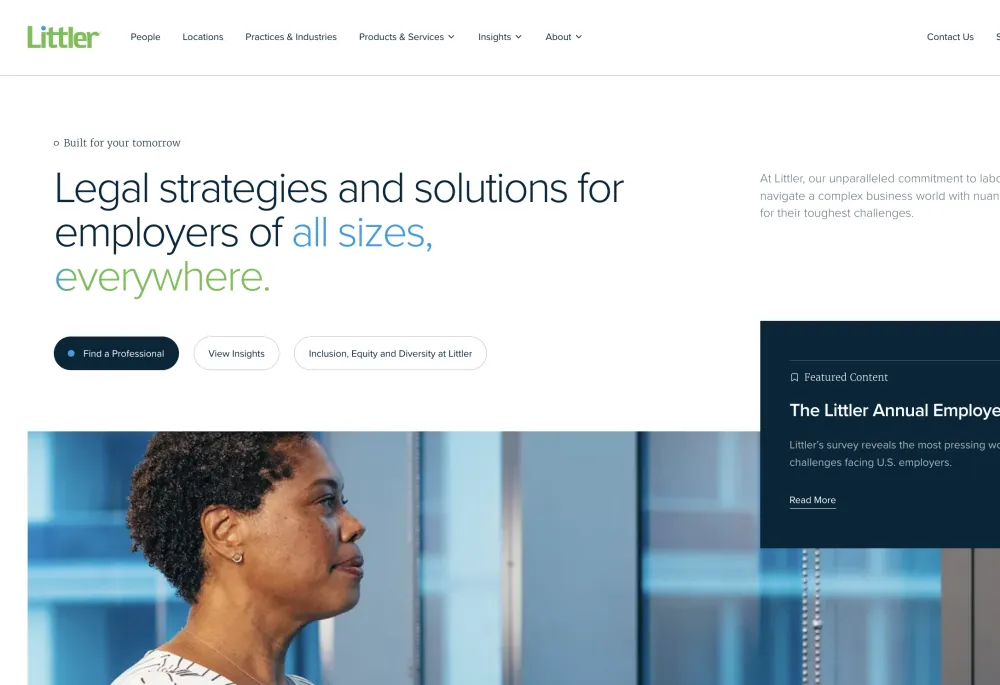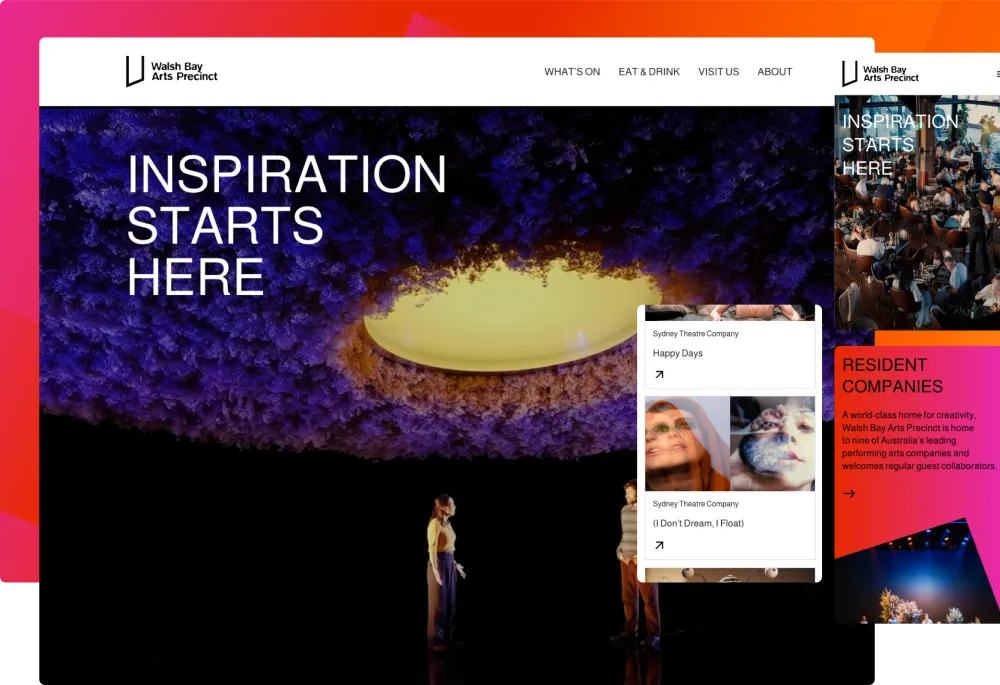Sector(s)
Team Members
Visit the site
Visit the siteOrganizations Involved
Community contributions
As a Drupal Certified Partner Platinum and a supporting partner and organizational member of the Drupal Association, Factorial has been contributing to the global Drupal community since its founding in 2015. By sponsoring and organizing events (Splash Awards, DrupalCamp, Drupal User Group Hamburg), sponsoring development time for our Drupal developers, and submitting sessions for conferences, we actively invest in the further development of the framework and the community. As a member of Drupal Business e.V. and Drupal e.V., the German Drupal Association, we are also committed to marketing Drupal in the DACH region.
One of the core features used in the TelefonSeelsorge project is the Group module, which was developed and is maintained by our former employee Kristiaan van den Eynde. At Factorial, we have been investing a lot of resources in the further development of the Group module for many years in order to financially support Kristiaan's contributions.
A Growing Need for Support – and a Digital Ecosystem That Can Keep Up
TelefonSeelsorge is one of the most important points of contact for people in crisis – anonymous, free of charge, and available around the clock. More than 7,500 volunteer staff members conduct over 1.5 million conversations each year – by phone, email, chat, or in person. They listen when words are hard to find. They endure what others cannot. And they are there when life gets heavy.
This emotional emergency service is a backbone of our society – sustained by empathy, professionalism, and deep humanity. For all of this to function, more than just compassion is required: it also needs organization, structure, and digital systems that reliably support this work behind the scenes.
About the project
How Can Communication and Collaboration Stay Efficient in a Complex Organization?
What began as a telephone-based pastoral care service has evolved into a complex network of phone, chat, email, and in-person counseling. The demand for pastoral care and the number of people seeking help are steadily increasing. At the same time, communication channels are becoming more diverse. Younger target groups are more likely to seek quick, digital access via chat or email, while older individuals still prefer traditional phone or face-to-face counseling.
The existing intranet could no longer keep up with these developments. Slow loading times, confusing structures, and outdated technologies shaped the daily routine. Many staff members spent more time on administration and internal coordination than on what really matters: supporting people in emotional distress.
Administrators and volunteers increasingly turned to external tools. This led to fragmented processes and increased communication efforts in order to maintain an overview of all counseling activities. This, in turn, raised daily stress levels and the risk of losing control over data sovereignty.
TelefonSeelsorge needed a digital ecosystem that supports its internal operations just as reliably and humanely as it supports those seeking help externally. Effective collaboration, secure communication, and clear structures – this was exactly what our business analysis set out to deliver.

A system that relieves pressure and creates space for what really matters.
Every great solution for us begins with a comprehensive business analysis. It forms the foundation for informed decisions and systems that address the root, not just the symptoms. Together with TelefonSeelsorge, we examined how organization, user needs, and technology currently relate to each other – and how sustainable digital transformation can emerge from that.
At the heart of this was a comprehensive audit of the status quo. We analyzed processes, interviewed stakeholders, identified usage conflicts, and reviewed the existing system for structural and technical barriers. The goal was to merge existing problems and optimization potentials with overarching requirements for features and processes. From this, we derived the key criteria for a sustainable digital future.
During the analysis phase, we identified five key pillars that the intranet must support as a digital ecosystem:
- Counseling: with conversation management and documentation across phone, email, chat, and in-person support
- Organization: with numerous regional, interregional, and national structures
- Communication: within changing groups and committees, topic-specific and location-independent
- Administration: involving platform control, staff management, and permissions
- Technology & Infrastructure: as the foundation for stability, security, and scalability
Based on these pillars, we prioritized requirements, reimagined user journeys, and defined a realistic project setup. The focus remained on the people who work with the system every day. A digital intranet is only successful if it does not add to the burden – but instead provides tangible relief – in application, collaboration, and peace of mind.
Our mission was therefore clear:
Technology for more humanity – a system that structurally empowers staff and creates more space for supporting people in need.
Business Analysis That Creates Real Organizational Impact
Requirements Engineering
Through a sound business analysis, all functional and organizational requirements were identified, prioritized, and documented early on. This creates clarity across all teams and reduces the need for repeated alignment later in the process.
Agile Project Management
Using the MoSCoW method, functions were realistically categorized into Must-haves, Should-haves, Could-haves, and Won’t-haves. This defined a reliable scope that aligned with available budgets, resources, and technical feasibility.
User-Centered Design
All requirements were developed based on specific user journeys and role profiles. This foundation allowed UX, design, and development to be synchronized early on, preventing technical roadblocks.
Robust IT-Architecture
The project did not aim for a cosmetic update but a future-proof, scalable platform. Technical and organizational structures were conceived together and aligned consistently.
Collaboration That Works
The new system logic creates a digital ecosystem where communication, documentation, and organization converge. Internal processes are simplified, external tools become obsolete, and collaboration is measurably improved.
Confident Go-Live
Thanks to the structured preparation, the project is reliably set up. All involved parties work with clear roles, coordinated timelines, and a shared goal. The launch is scheduled for November 2025 – and is on track.

Why Strong Business Analysis Leads to Better Digital Solutions
The analysis phase did not end with a report, but with a reliable roadmap. Through the structured business analysis, requirements were clarified, priorities were set, and a clear scope was defined. The MoSCoW method made transparent which functions were essential, which could follow later, and which were unnecessary.
In addition, the analysis phase defined key project goals that now serve as guiding principles for all further decisions:
- High performance for seamless use
- Short communication paths to reduce staff workload
- Structure aligned with business processes for efficient and traceable work
- Easy access to relevant documents for greater clarity and time saving
These core goals laid the foundation for precise requirements engineering, giving all project stakeholders – from UX design to front-end to back-end – a reliable working basis. At the same time, they serve as benchmarks for prioritizing requirements and measuring success together with the client.
Back to topWhy Drupal was chosen
Drupal was chosen for its combination of an open source essence with powerful capabilities: Managing complex data structures, supporting granular, role-based permissions for thousands of users, and seamlessly integrating a wide range of third-party applications into a unified, efficient platform.

Technical Specifications
Drupal version:
Key modules/theme/distribution used:
The Group module provides a core functionality for the system: User-specific and easy-to-manage permissions that enable the more than 7,500 employees and voluntary workers to focus on the accessible material and information that they need. The administration at TelefonSeelsorge can control the distribution of documents as well as the assignment to regional focus groups centrally, supporting each employee with the information for their daily work.



